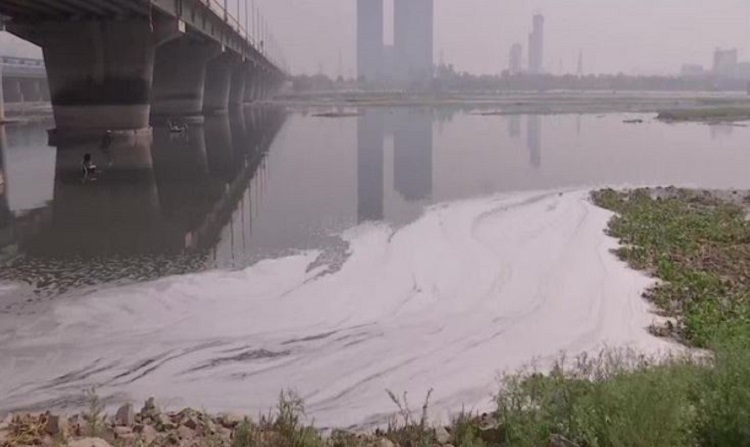Yamuna Pollution Doubled In 8 Years Of Kejriwal Govt In Delhi: LG Office
River Yamuna has become twice more polluted during the last eight years of the Kejriwal government in Delhi, according to a statement from the Lieutenant Governor's Office. Read on for details:

New Delhi: River Yamuna has become twice more polluted during the last eight years of the Kejriwal government in Delhi, according to a statement from the Lieutenant Governor's Office.
In 2014, at Palla, where Yamuna enters Delhi, the pollution in the river, in terms of Biological Oxygen Demand (BOD), was within acceptable limits at a mere 2. When the river left Delhi at Okhla Barrage, its BOD load was 32 in 2014. However, in 2023, while the BOD load at Palla remains at 2, the same at Okhla has risen up to a staggering 56, said the statement.
The year-on-year rise in pollution has been consistent since 2014, with the only exception being the year 2019, when Haryana - which was undertaking repair of the Yamuna Canal, released more than four times water into Yamuna from the Hathini Kund Barrage. The same resulted in pollutants getting washed downstream.
This increase in pollution is mainly on account of, the Aam Aadmi Party (AAP) government failing absolutely to check pollution from the Najafgarh Drain, despite persistent directions and monitoring of the Supreme Court and the National Green Tribunal, the statement said.
While in 2014, BOD at ISBT, just after the Najafgarh Drain falls into Yamuna was 26, in 2017, it rose to 52 and remains at a high of 38 even today.
The LG Office said Najafgarh Drain accounts for 68.71 per cent of the wastewater being discharged into Yamuna, and the second biggest polluter is the Shahdara Drain which accounts for 10.90 per cent of discharge.
The LG Office said that cleaning of both these Drains has remained unaddressed is evident in the fact that the BOD load discharged into Yamuna by Najafgarh Drain amounts to 70 per cent and the figure of BOD load from Shahdara Drain amounts to 13.95 per cent.
This is on account of the fact that the Drains from the city flowing into the Najafgarh Drain have not been trapped and untreated sewage is being discharged into the drain and then into the Yamuna, , the statement said.
Only nine of the 35 Sewage Treatment Plants (STPs) comply with the standards of 10:10 for BOD:TSS (Total Soluble Solids). This results in the fact that only 145 MGD (27.3 per cent) of the 530 MGD sewage being treated at these STPs is non-polluting. It may be noted here that Delhi generates 768 MGD of sewage every day. The STPs in Delhi have the installed capacity of treating 530 MGD. However, these STPs function at just 69 per cent of their installed capacity and hence, effectively, only 365 MGD of sewage is treated every day, according to the statement.
These facts LG Office said came to the fore in a presentation made by Delhi Pollution Control Committee, Environment Department and Delhi Jal Board, at a meeting chaired by Delhi LG VK Saxena on Saturday.
The meeting was called to take stock of the ground situation, before the first meeting of the High-Level Committee constituted by the National Green Tribunal, to ensure the cleaning of Yamuna through its order on January 9, 2023. The NGT in its order had requested Delhi LG to head this Committee. (ANI)
 Dynamite News
Dynamite News